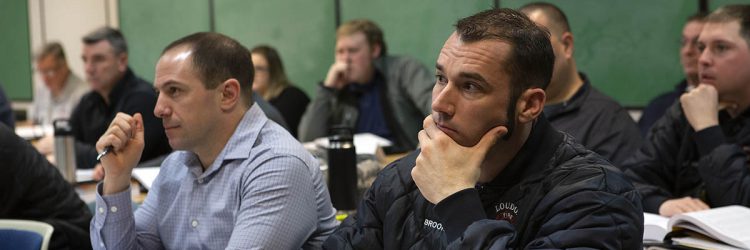Engine Company Operations: Hose Line Advancement and Water Application Hands on Training (Train the Trainer)
Richard M. Flynn Training Facility 98 Smokey Bear Blvd, ConcordThis is a Train the Trainer Course. Online registration does not guarantee enrollment. Course enrollments will be finalized after July 1st and students will be notified by email. Prerequisites: Fire & Emergency Services Instructor Below are the suggested courses that instructors should take to prepare for the July Water Mapping course. https://training.fsri.org/course/012-water-mapping https://training.fsri.org/course/013-air-entrainment https://training.fsri.org/course/014-suppression-tactics Fire service research highlights the importance of well-placed initial handlines applying fast water to the fire effectively, either from the interior or the exterior of the structure. Several recent AFG funded studies by FSRI examined the mechanics of hose streams to better equip firefighters with the knowledge for how hose line and nozzle selection, hose stream type, and advancement method affect the fire dynamics and victim survivability during suppression actions on the fireground. Understanding the fundamentals of hose stream mechanics is vital to the success of fire suppression operations on the fireground. This includes knowing when and how to utilize air entrainment to your advantage, understanding when air entrainment can be your enemy, and understanding how to best apply the water through various application patterns, stream angles, and deflection methods to successfully map the compartments inside a structure. The objective of this project is to improve the safety and effectiveness of structural firefighting and the survivability of potentially trapped occupants by preparing and providing hands-on training for suppression-based skills to be employed on the fireground. This training goes above and beyond the very basic training typically provided in introductory firefighting courses by providing a more in depth understanding as to the mechanics of interior, exterior and attic suppression along with hydraulic ventilation and the use of specialty nozzles. This training is vitally important as effective suppression operations are the basis for a successful coordinated fire attack in today’s modern fire environment.



